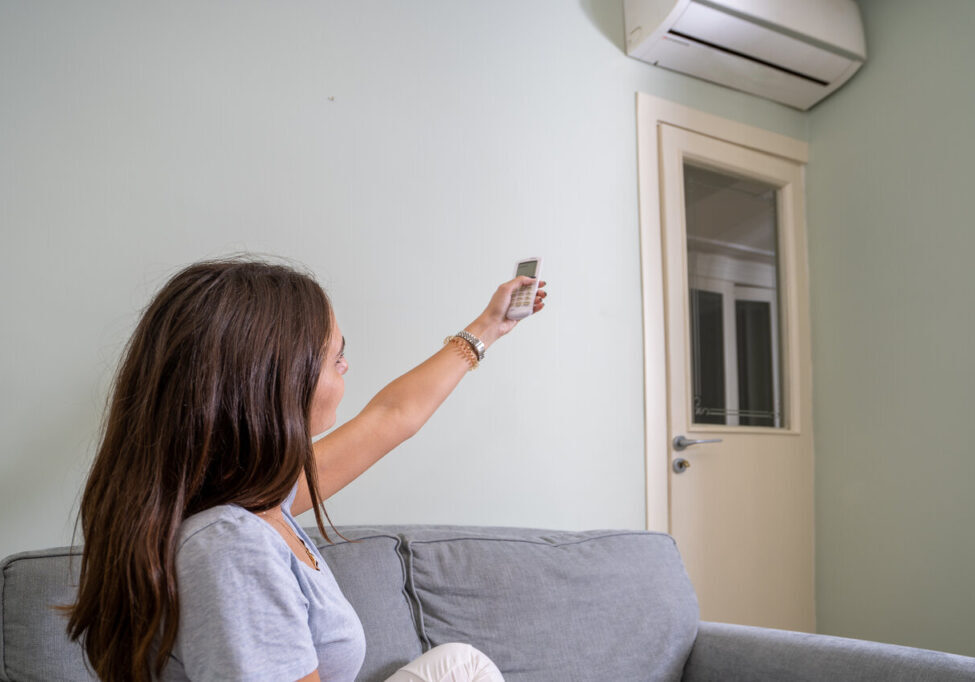HVAC Maintenance Checklist For The Homeowner
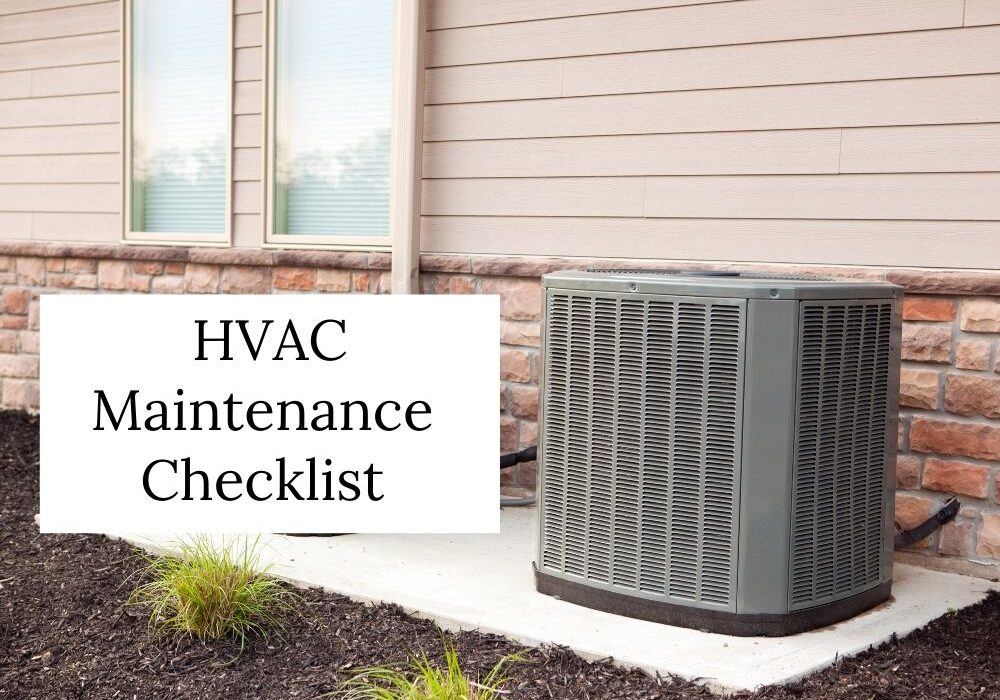
HVAC maintenance is an essential part of being a homeowner and keeping your system running optimally for years to come. By following the checklist above, you can rest assured that you are doing everything you can to keep your system running as smoothly as possible.
No matter what corner of the world you live in, we all deal with extreme temperatures that can be hard on our home’s HVAC system. That’s why it is important to know how to maintain your HVAC system.
To make this as easy for you as possible, we have included a full HVAC maintenance checklist for you in this blog post.
You can either follow this checklist yourself or hire a professional to help you do this maintenance.
Here are our top tips for maintaining an HVAC system.
HVAC Maintenance Checklist
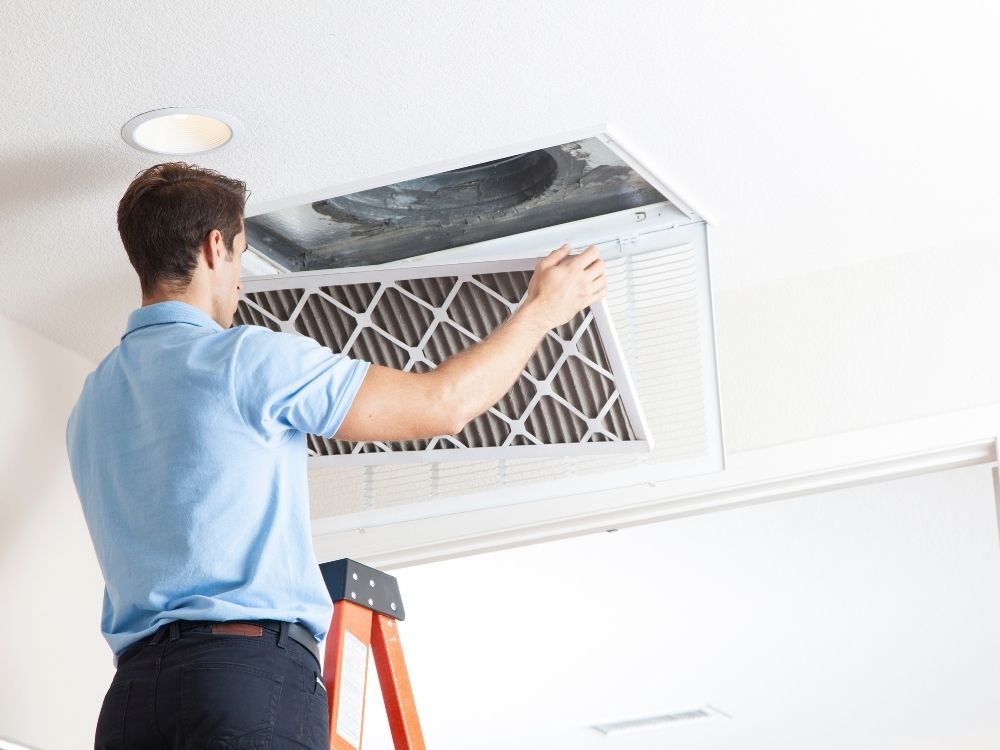
Check Your Air Filters Regularly
We bring a lot of dirt and debris into our homes which can be hard on our HVAC systems. That’s why it’s so important to check your air filters regularly. Otherwise, all this dirt and debris will build up over time and clog your air filter which is hard on the system and will reduce its efficiency.
When you are doing your maintenance, check the air filter. If you notice that it’s dirty, replace it immediately with a new one.
Air filters are generally pretty inexpensive and can be found at your local hardware shop or even online. There are numerous sizes of air filters though, so make sure you buy the correct ones.
How often you have to replace your air filters will depend on a variety of factors including the type of filter, how many people are in your house, if you have pets in the home and the level of air pollution.
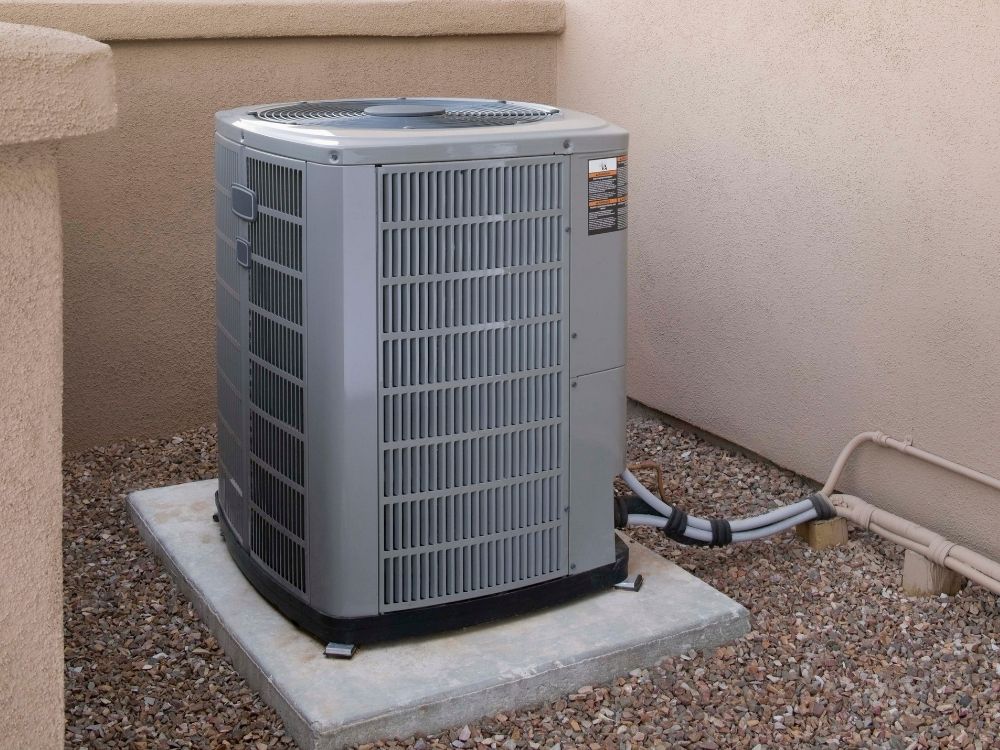
Inspect Moving Parts of Your HVAC System
HVAC systems have a lot of moving parts including belts, hoses, and so on. Unfortunately, due to the nature of the work these parts are doing, they are extremely prone to wear and tear over time.
To keep your HVAC system running smoothly, inspect these parts regularly for signs of damage. Any hoses, belts, or gaskets that look cracked, worn or frayed should be replaced immediately. You can either do this yourself or hire someone else to do it.
Whenever you are hiring someone to work on your HVAC system, we recommend finding a good quality company that has insurance. That way if they accidentally damage your unit, you will have some coverage and they will fix it for you.
During the routine maintenance of your HVAC system, you can also lubricate each of these moving parts. This can drastically reduce wear and tear and help them last longer.
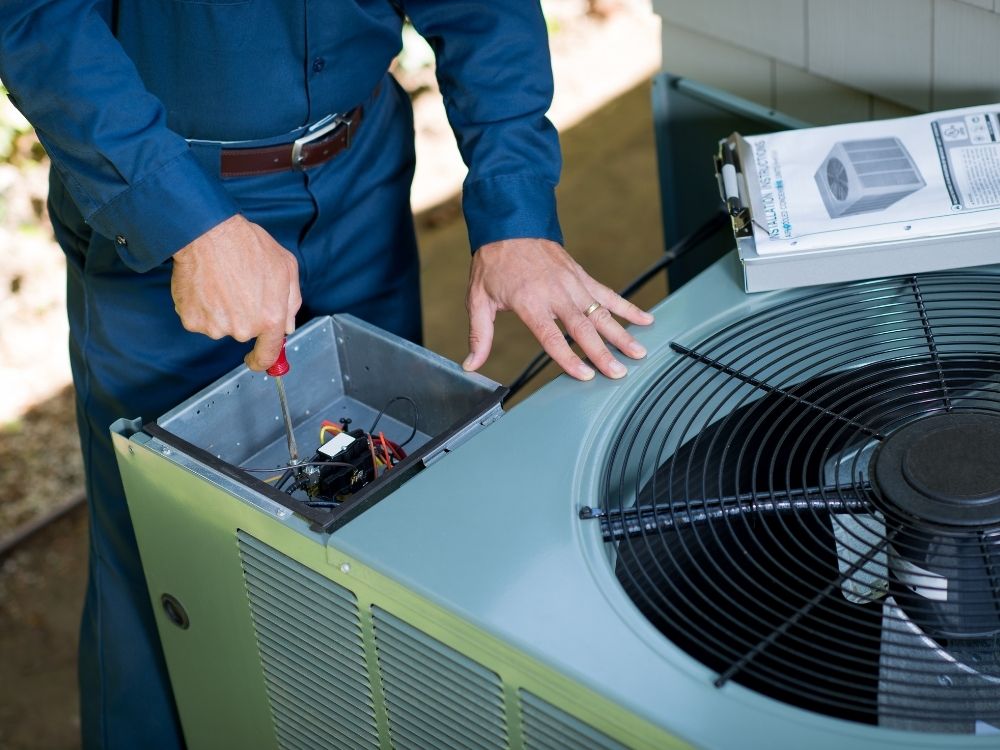
Tighten Electrical Connections
As with anything, it is common for electrical connections to become loose over time. And loose electrical connections can result in damage to your system, reduced efficiency, and so on.
To ensure that all your electrical connections stay tight, check them periodically. If you’re not comfortable doing this yourself, hire a qualified electrician or HVAC technician to inspect and tighten them for you.
It is best to do this at least once per year.
Clean The Condenser & Evaporator Coils
The condenser and evaporator coils are two of the most important components of your HVAC system because they are responsible for heat transfer between the inside and outside of your home.
Accumulated dirt and debris can reduce the efficiency of these coils, so it’s important to clean them periodically.
To clean these components, turn off the power. Then hose them down with a garden hose or use a coil cleaner specifically designed for HVAC systems. If your HVAC unit is located inside your home, then you can use a wet-dry vacuum or air compressor instead.
Once everything is clean, you can turn your system back on. Make sure you have enough time to monitor the system once you’ve turned it back on to identify any potential issues after having it turned off.
This should also be done once per year.
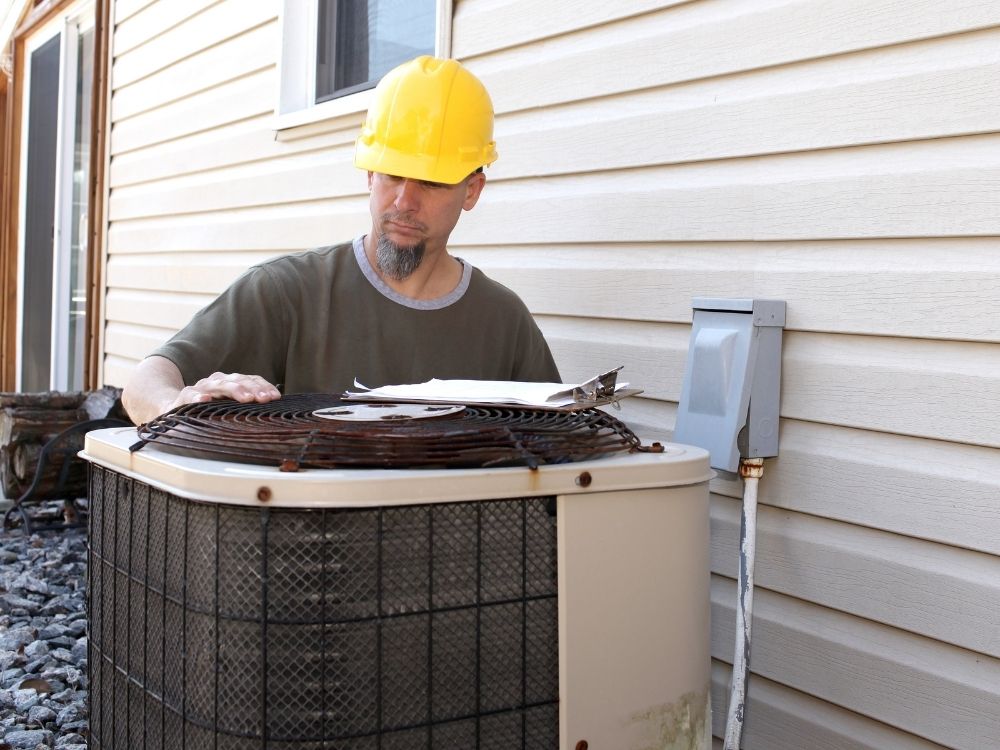
Remove Water From Drain Pans
I know it can be alarming to see water near your HVAC system, but water in your drain pans is completely normal. This is because an HVAC unit produces a lot of condensation.
While most of the water will evaporate over time, you might notice that it doesn’t when the air is extremely humid. If you notice that the water is not evaporating, then you should remove the water from the drain pan to keep your system operating efficiently and potentially avoid water damage to your home, depending on where your drain pans are located.
To empty the drain pans, you can use a wet-dry vacuum or shop vac to siphon out the water.
In addition to emptying water from the drain pans, it is also beneficial to check for clogs in the drain line and remove any debris that could be blocking the flow of water.
We recommend checking this periodically throughout the year and increasing the frequency during high-humidity seasons.
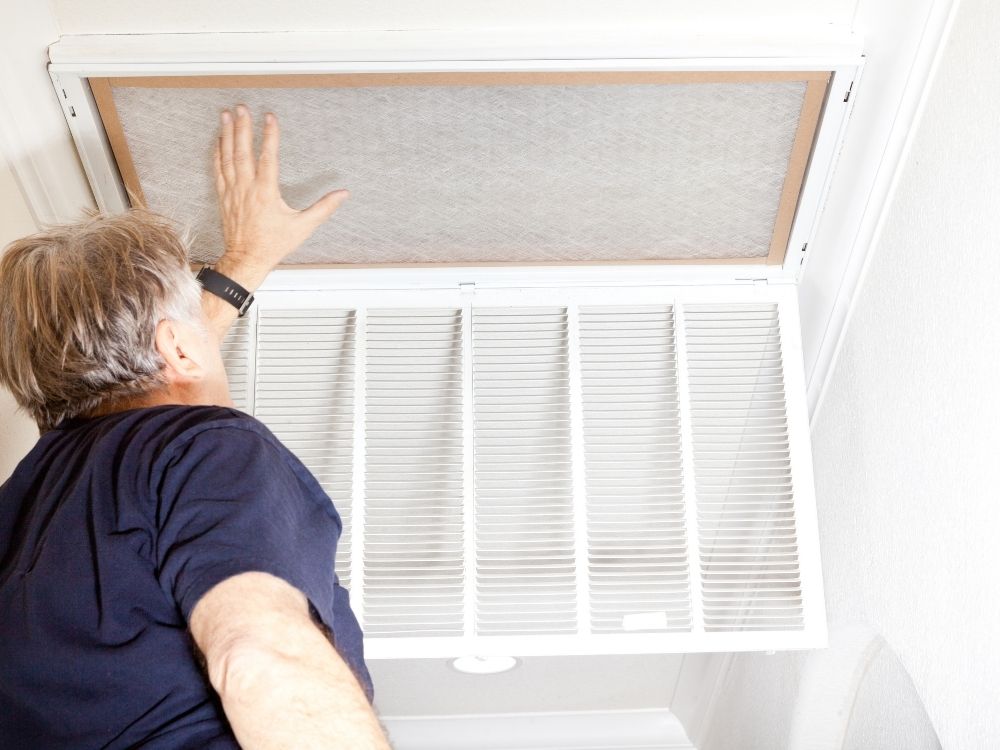
Why You Should Regularly Maintain Your HVAC System
Regular maintenance of your HVAC system is essential for keeping it running efficiently and effectively. By following the checklist above, you can help ensure that your system is in top condition and able to keep your home comfortable all year round. After all, the last thing you want is to have your HVAC unit break down in the middle of summer!
In addition to keeping your system running more efficiently, you will also be able to save money by having fewer repair bills and reducing your energy costs.
The last benefit, and a rather important one, is improved air quality in your home. Since HVAC systems circulate air, it’s important to keep them clean and free of debris to improve the air quality inside your house.
How often should you service your HVAC system?
It is generally recommended that you check your HVAC system periodically throughout the year. During these checks, you will be able to replace your air filter if it’s dirty, inspect for any problems, and address any issues immediately to prevent further damage or costly repairs.
It’s also important to schedule an annual HVAC maintenance service with a qualified technician, as they will be able to thoroughly inspect and clean your system, ensuring it is running at peak efficiency all year round.
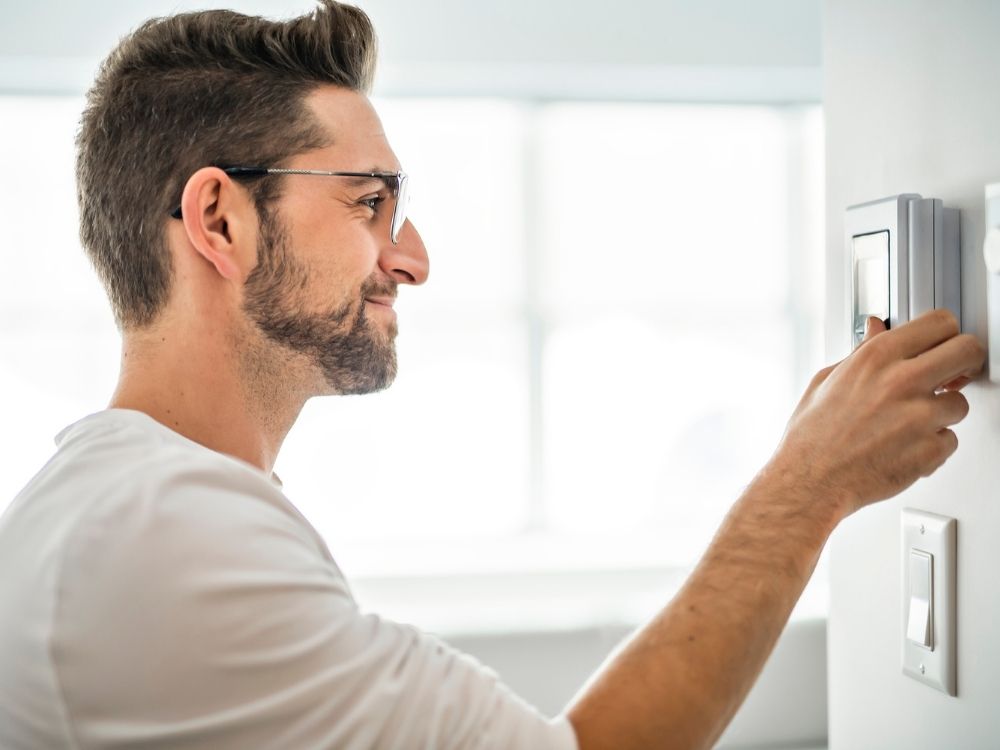
How much does HVAC maintenance cost?
The cost of HVAC maintenance depends on the type of HVAC system you have, the services you require, and where in the United States you are located. Generally, HVAC inspections range from $50 to $100+ depending on the complexity of your specific unit.
In addition to the cost of inspection, you will need to factor in the cost of your air filters. Thankfully, these are generally inexpensive, especially if you can buy them in a multi-pack.
Are HVAC Repairs Covered Under A Home Warranty?
Yes, some HVAC repairs are covered under a home warranty, and Home Membership can help you! To learn more about HomeMembership‘s pricing in your state as well as what would be covered under your warranty.


